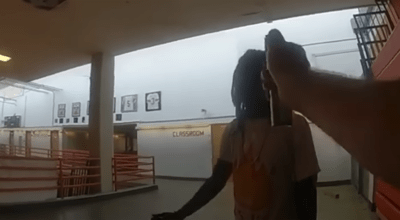
I have been seeking aid of a lawyer in the Nashville area to prosecute a civil case over my false arrest covering the Tennessee judicial conference Nov. 6, 2021, in Franklin, which arrest sparked a federal lawsuit by other parties seeking an order opening up the secretive gatherings.
By David David Tulis / NoogaRadio Network.
Our midstate bureau chief Christopher Sapp and I have had lively conversations with several lawyers, including a leading light, Larry Crain, in Brentwood, and, Memphis attorney Buck Dougherty of Liberty Justice Center in Chicago, and Charles Agee of Dyersburg who won a F$k115,000 verdict against two door-busting TBI agents. I’ve had good talks with others, including Bryan Mosley and Jerry Gonzalez, who seem knowledgeable of the area of law in which such a lawsuit would take place.

The liveliest talk I’ve had has been with Carthage attorney Richard Brooks, who is known for suing cities and cops for abusive arrests and who in his 70s has a salty vocabulary and a colorful no-BS manner that might fit him easily in a John Grisham novel.
After two 40-minute conversations, one of them with Mr. Sapp, he said, “I don’t think yo got a case I want to get into. *** I’ve got more than I can do right now. I hope you can find someone to take it on for you. But I am not your man.”
My options appear to be running out. I am thinking I may have to file my own case, stripped down to one bare essential, as 50 attorneys not wanting to take the case is about the limit of I can do in the one-year time limit. If I cannot find representation by Oct. 1, I have to commit to filing my own case in persona propria, and using the 31 days of October to draft and organize the complaint and exhibits, read circuit court rules generally and specifically for Williamson County, and study courtroom procedure. It would have to be filed by Nov. 6 to avoid the bar of the statute of limitations.
‘You did not have the right’ to cover event
A top-notch Tennessee attorney from among those I sent my two-page lawsuit proposal letter says I have got it all wrong; I’m wrong on the law about the open meetings act, and I cannot file a 42 U.S.C. 1983 civil rights suit based only on state harms. I had sent him my two-page lawsuit proposal letter, with attachments (uniform summons charging instrument, expungement of case, 2 letters to supreme court chief justice Roger Page, press release).
“There are many problems with your theory,” he begins.
“1. The Open Meetings Act does not apply to the judicial branch. Your own cited case of Dorrier v. Dark, 537 S.W.2d 888, 892 (Tenn. 1976), says that. So does Moncier v Board of Professional Responsibility (attached). So, you did not have the right to be at the judicial conference.
“2. The State is immune from money damages under Section 1983. The state is also immune from punitive damages.
“3. Even assuming for the moment that the cop violated T.C.A. § 40-7-103, that cannot be the basis for suit under 1983 as 1983 only allows for suits where federal law was violated, not state law. And it does not matter if some General Sessions judge in some county thinks the cop lacked probable cause. Ultimately, it will be first for the judge then, if you get past the judge, the jury to decide if there was PC. I think there was since you did not have a right to be at the conference.
“4. Even if you sue in state court to save a few hundred dollars, the defense will immediately remove it to federal court. Then, when you lose, you’ll have to pay the filing fee anyway plus all costs of litigation.
“5. As I said on the phone, even if you could win (which I don’t think you will), your damages are quite limited. Juries simply do not award a great deal of money for violations of constitutional rights (assuming you had the right to be there) nor for tight handcuffs.
“Thanks for reaching out to me but I decline to take the case. I wish you the best of luck.”
Narrowing down case
My take on this letter is that the two cases cited, Dorrier and Moncier, are either in favor of my claim to have attended the secret conference by right, or not speaking against it. The Moncier case seems off point, because it deals with the board of civil responsibility and his records pertaining to chastisement of attorneys. The conferences are different. There are six, all but one for judges. District attorneys have a conference overseen by AOC, the administrator of the courts. These bodies set policy, proposed changes for lawmaking bodies in the general assembly, even hire lobbyists to affect the form of legislation debated by the legislature.
I believe this lawyer errs in saying I did not have the right to crash the conference and stand my ground, even though a sessions court judge, M.T. Taylor, says there was “no probable cause” for my arrest by Franklin cop William Orange. Mr. Sapp and I were there by right, plain and simple, and the courts are operating in violation of the Tennessee constitution and duty under the open meetings act. The open meetings act, I contend, applies to the judicial branch, which is not excluded in the law from its scope of operation.
A scaled down suit would not focus on AOC actors conspiring against my rights. I would omit the hotel whose manager Lisa Hegwood was puppeteered by AOC staff into “trespassing” me. It would focus in Franklin city and its cop, Mr. Orange. A very narrow suit, on a single point of law — false imprisonment — might obtain a ruling in my favor, though my detention was all of 20 minutes. False arrest is a matter of law. I would take October to determine if Tennessee law envisions a way to clearly show false imprisonment.
Would the suit involve violation of 40-7-103, arrest by officer without a warrant? I told Mr. Orange he had to get a warrant, that “the officer’s presence” is but one of two tests for warrantless arrest. The other: Is the misdemeanor e a “public offense”? Public offense is a specific sort of crime in the nature of a riot, affray or consternation that makes other people feel in danger of their personal safety. It makes people uneasy, is an offense with a public face, a public effect. It being a crime is not sufficient for an offense to be a “public offense.”
The public offense jurisprudence is clear that such a misdemeanor is one for which one citizen can arrest another, an offense with a public face.


Seems that you could come to know that you will have to prosecute this crime on your Lawful Authority as one of the People of Tennessee.
Talking to only two attorneys. They work for corporate government to keep a lid on the constructive fraud. Not for the People of Tennessee.
The Sheriff of that county is supposed to be the law man for the People of Tennessee. Take your criminal complaint to him.
False arrest/imprisonment is still a crime.
The sheriff on Williamson County told me that he will not take an action to defend the people against unlawful & hostile LEO unlawful/illegal arrests unless he clears it first with the county attorney. The sheriff’s dept badge is encircled meaning they are under the thumb of the corporation and the BAR attorneys who seem to run the show in Williamson County and City of Franklin.
They are all officers of the court and do not protect the rights of the people or even recognize that we have rights, ignoring settled case law and SCOTUS decisions to the contrary.
IT’S TYRANNY… all over again. They do whatever the hell they want and get away with it. A microcosm of Washington, DC.